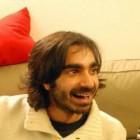Interview with Free Ekanayaka
dqlite: High-availability SQLite. An embeddable, distributed and fault tolerant SQL engine

Free Ekanayaka will give a talk about dqlite: High-availability SQLite. An embeddable, distributed and fault tolerant SQL engine at FOSDEM 2020.
Q: Could you briefly introduce yourself?
I’m an employee at Canonical, the company behind Ubuntu, and I’m currently working in the LXD team. I started to appreciate and love the FOSS community and model in the late 90s at university, and never stopped since then! I started by contributing to Debian as package maintainer, and progressively became more involved in broader software development in Python, then in Go and lately in C.
Q: What will your talk be about, exactly? Why this topic?
The talk will present Dqlite, an embeddable and fault tolerant SQL engine. Dqlite combines SQLite and the Raft consensus algorithm to make it easy to build highly-available multi-node applications that don’t depend on any external service to store and replicate their SQL relational data.
I’m the main developer of Dqlite, and now that the project has reached its 1.0 version I think it’s a great time for people to try it out.
Q: What has changed over the last 20 years for SQLite and other FOSS databases?
SQLite has arguably grown to become the most widely deployed and used database in the world: an extremely reliable, fast and lean library that powers a huge variety of applications written in a number of different languages. Dqlite sits on the shoulders of this giant and extends it to play nicely with distributed multi-node applications, which are becoming increasingly common.
Q: Have you enjoyed previous FOSDEM editions?
I absolutely loved the 2019 edition, which was the first one I had the oportunity to attend: the content, audience and atmosphere really feel close to the FOSS way of doing things, a great chance to bring the community together.

Creative Commons License
This interview is licensed under a Creative Commons Attribution 2.0 Belgium License.